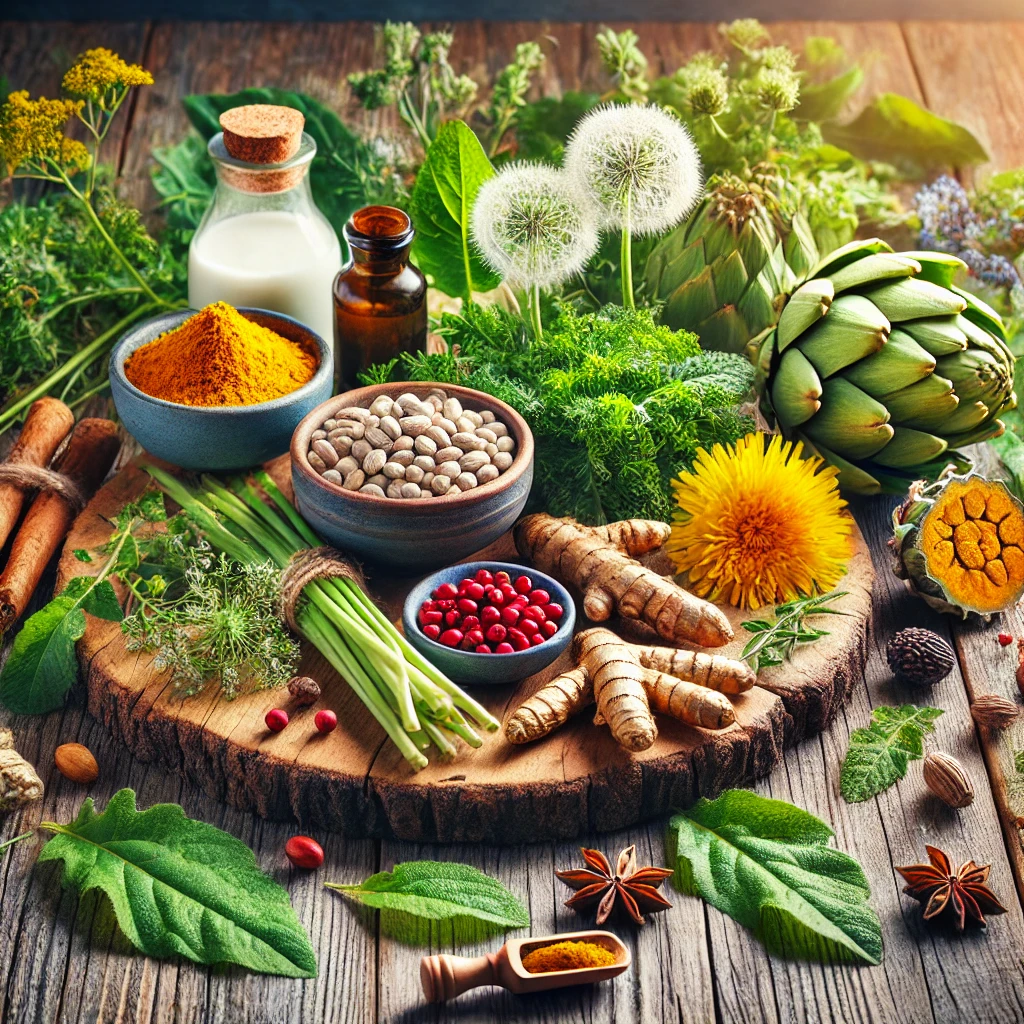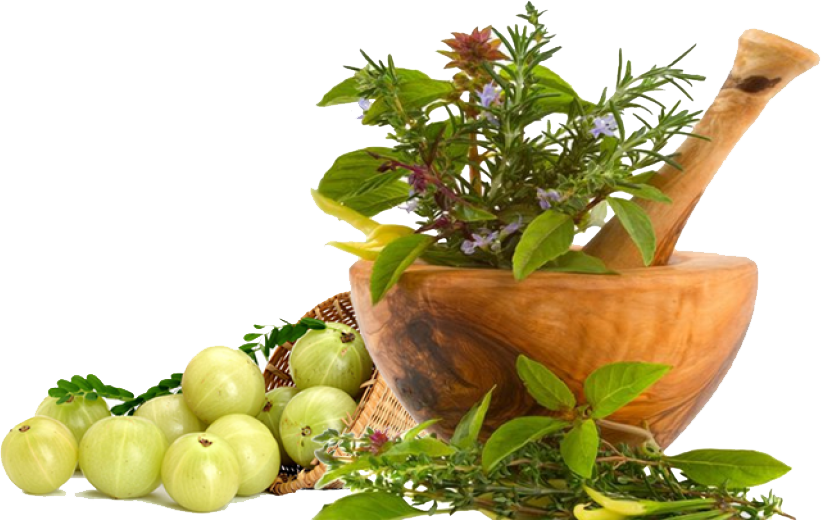The liver is one of the most vital organs in the body, responsible for filtering toxins, producing bile, metabolizing fats, proteins, and carbohydrates, and storing essential nutrients. Given its importance, maintaining liver health is crucial for overall well-being. While modern medicine offers several treatments for liver issues, herbal remedies offered by reputed PCD Ayurvedic companies have long been used to support liver function and detoxification naturally.
As a leading Ayurvedic PCD Company in Chandigarh, Marowin Healthcare is committed to providing high-quality herbal solutions that support liver wellness. Here are some of the most trusted herbs for liver health:
1. Milk Thistle (Silybum marianum)
Overview:
Milk thistle is one of the most well-known and extensively researched herbs for liver health. Its active compound, silymarin, has antioxidant, anti-inflammatory, and antiviral properties that make it a powerful liver protector.
Benefits:
- Protects Liver Cells: Silymarin helps in preventing toxins from binding to liver cells, thus reducing the risk of liver damage.
- Regenerates Liver Tissue: It also promotes the regeneration of liver cells, making it particularly useful for those suffering from liver diseases such as cirrhosis or hepatitis.
- Antioxidant Properties: By neutralizing free radicals, milk thistle helps reduce oxidative stress, a significant factor in liver damage.
- Detoxifies the Liver: It supports the liver’s ability to detoxify harmful substances, making it an ideal remedy for those looking to cleanse their system naturally.
How to Use:
Milk thistle is widely available in various forms, including capsules, tinctures, and teas. A daily supplement of 200-400 mg of silymarin is typically recommended for liver health. Milk thistle tea can also be consumed, although it may have a mild, slightly bitter taste.
2. Dandelion Root (Taraxacum officinale)
Overview:
Dandelion root has been traditionally used for centuries as a liver tonic. Its ability to stimulate bile production makes it an excellent herbal remedy for promoting liver function and detoxification.
Benefits:
- Promotes Bile Production: Dandelion root helps increase bile production, which is essential for digestion and the breakdown of fats in the liver.
- Detoxification: By stimulating the liver’s detoxifying processes, it helps flush out toxins that accumulate due to poor diet, alcohol consumption, or environmental factors.
- Diuretic Effect: Dandelion root also acts as a natural diuretic, helping the kidneys and liver work together to eliminate waste from the body.
- Supports Liver Regeneration: Research suggests that dandelion root may also help regenerate liver cells, improving overall liver function.
How to Use:
Dandelion root is available in tea form, as well as in capsules and tinctures. Drinking dandelion root tea regularly, especially after meals, can help enhance liver function and digestion. A common recommendation is to consume about 2 to 8 grams of dried dandelion root per day.
3. Turmeric (Curcuma longa)
Overview:
Turmeric, known for its vibrant yellow color, is a powerful anti-inflammatory and antioxidant herb that has gained global popularity for its numerous health benefits. Its active compound, curcumin, has been shown to offer protection against liver damage.
Benefits:
- Reduces Inflammation: Chronic liver inflammation can lead to conditions like fatty liver disease and cirrhosis. Turmeric’s anti-inflammatory properties help protect the liver from inflammation-related damage.
- Fights Oxidative Stress: Curcumin’s antioxidant properties reduce oxidative stress, a key contributor to liver damage, helping the liver to function more efficiently.
- Stimulates Bile Production: Turmeric enhances bile production, aiding in the digestion of fats and promoting liver detoxification.
- Prevents Liver Fibrosis: Some studies have found that curcumin may help prevent liver fibrosis, a condition where excess fibrous tissue builds up in the liver, potentially leading to liver failure.
How to Use:
Turmeric can be incorporated into your diet through curries, smoothies, or as a tea. For more potent effects, curcumin supplements (often paired with black pepper extract for better absorption) are also widely available. A daily dosage of 500-2,000 mg of curcumin is generally recommended for liver support.
4. Schisandra (Schisandra chinensis)
Overview:
Schisandra is an adaptogenic herb native to Asia, known for its ability to help the body adapt to stress and improve overall vitality. Schisandra has been used in traditional Chinese medicine for thousands of years to support liver health.
Benefits:
- Liver Regeneration: Schisandra helps in regenerating liver tissue and improving overall liver function, particularly after damage caused by toxins or alcohol.
- Detoxification: It enhances the liver’s detoxification processes by increasing the activity of liver enzymes that break down harmful substances.
- Antioxidant Power: Schisandra is rich in lignans, which are compounds with strong antioxidant properties. These help protect liver cells from damage caused by toxins, stress, and environmental pollutants.
- Improves Liver Function: Research has shown that Schisandra can improve the liver’s ability to metabolize toxins, making it an excellent herb for supporting liver detoxification and regeneration.
How to Use:
Schisandra is available in supplement form, as well as in teas and tinctures. It is often recommended to take 1-3 grams of dried Schisandra berries or the equivalent in extract form daily.
5. Artichoke Leaf (Cynara scolymus)
Overview:
Artichoke leaf has been traditionally used as a liver tonic due to its ability to promote bile production and support liver detoxification. The active compound cynarin found in artichoke leaves is believed to enhance liver health by stimulating bile flow.
Benefits:
- Increases Bile Production: Artichoke leaf increases bile production, which is essential for breaking down fats and flushing out toxins from the liver.
- Lowers Cholesterol: Studies have shown that artichoke leaf may help lower LDL (bad) cholesterol levels, reducing the strain on the liver.
- Protects Against Liver Damage: Artichoke leaf extract has been found to have protective effects on the liver, particularly in cases of liver injury or inflammation.
- Supports Digestion: By improving bile production, artichoke leaf also enhances digestion and the absorption of nutrients, helping the liver process fats more efficiently.
How to Use:
Artichoke leaf can be consumed as a tea, or taken in capsule or tincture form. A typical dosage is 300-640 mg of artichoke leaf extract, taken 2-3 times per day.
Conclusion
Taking care of your liver is essential for maintaining overall health and vitality. Incorporating herbal remedies like milk thistle, dandelion root, turmeric, schisandra, and artichoke leaf into your daily routine can help boost liver function, protect against damage, and promote natural detoxification.
While these herbs can offer significant benefits, it’s always a good idea to consult with a healthcare professional before starting any new herbal regimen, especially if you have existing liver conditions or are taking medication. Kindly Contact Us:
To book a Consultation call on us at +91 8427155220








